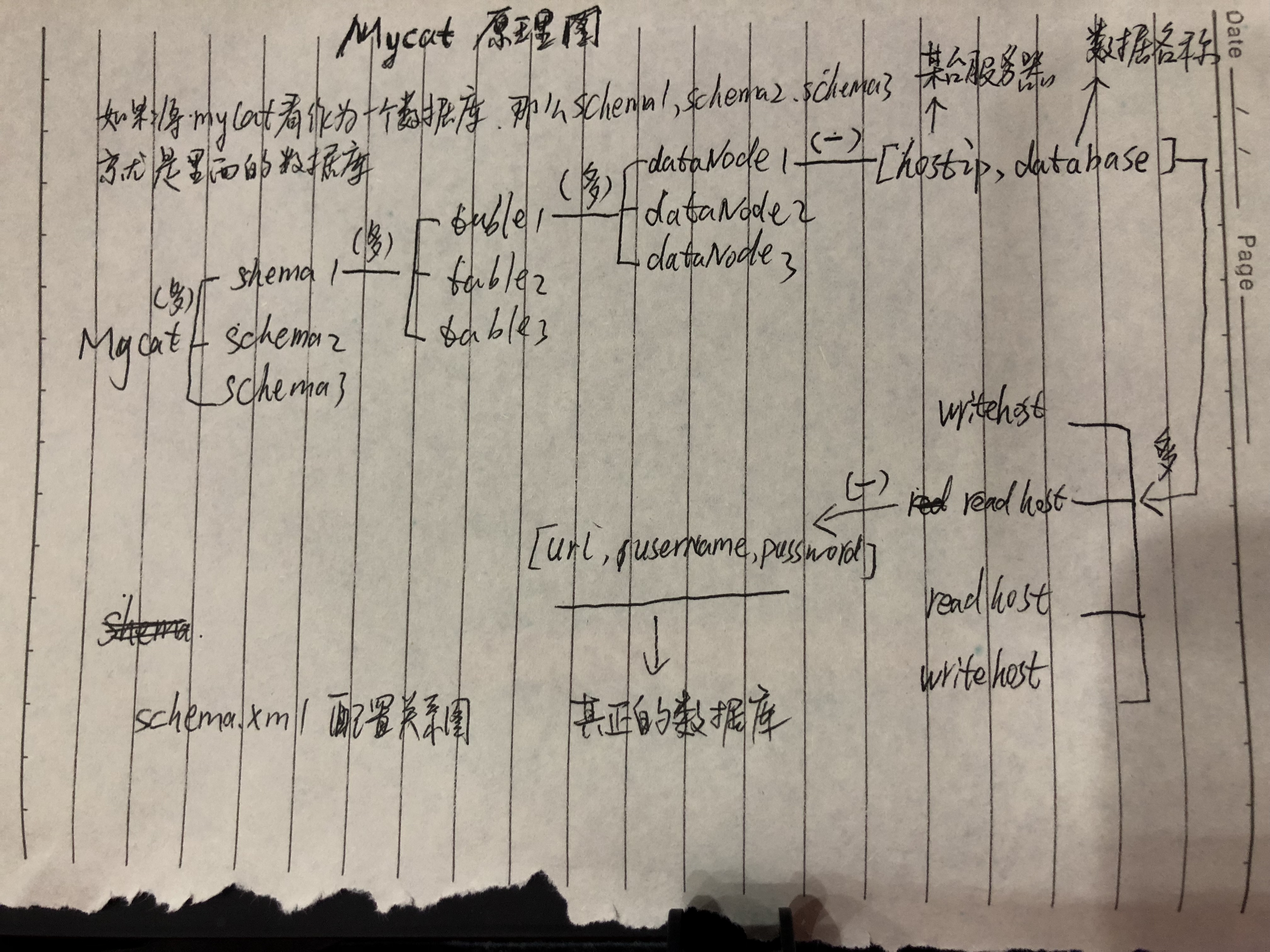mycat之schema.xml理解
Posted longtengdama
tags:
篇首语:本文由小常识网(cha138.com)小编为大家整理,主要介绍了mycat之schema.xml理解相关的知识,希望对你有一定的参考价值。
<?xml version=\\"1.0\\"?>
<!DOCTYPE mycat:schema SYSTEM \\"schema.dtd\\">
<mycat:schema xmlns:mycat=\\"http://org.opencloudb/\\">
<schema name=\\"mycat\\" checkSQLschema=\\"false\\" sqlMaxLimit=\\"100\\">
<!-- auto sharding by id (long) -->
<table name=\\"students\\" dataNode=\\"dn1,dn2,dn3,dn4\\" rule=\\"rule1\\" />
<table name=\\"log_test\\" dataNode=\\"dn1,dn2,dn3,dn4\\" rule=\\"rule2\\" />
<!-- global table is auto cloned to all defined data nodes ,so can join
with any table whose sharding node is in the same data node -->
<!--<table name=\\"company\\" primaryKey=\\"ID\\" type=\\"global\\" dataNode=\\"dn1,dn2,dn3\\" />
<table name=\\"goods\\" primaryKey=\\"ID\\" type=\\"global\\" dataNode=\\"dn1,dn2\\" />
-->
<table name=\\"item_test\\" primaryKey=\\"ID\\" type=\\"global\\" dataNode=\\"dn1,dn2,dn3,dn4\\" />
<!-- random sharding using mod sharind rule -->
<!-- <table name=\\"hotnews\\" primaryKey=\\"ID\\" dataNode=\\"dn1,dn2,dn3\\"
rule=\\"mod-long\\" /> -->
<!--
<table name=\\"worker\\" primaryKey=\\"ID\\" dataNode=\\"jdbc_dn1,jdbc_dn2,jdbc_dn3\\" rule=\\"mod-long\\" />
-->
<!-- <table name=\\"employee\\" primaryKey=\\"ID\\" dataNode=\\"dn1,dn2\\"
rule=\\"sharding-by-intfile\\" />
<table name=\\"customer\\" primaryKey=\\"ID\\" dataNode=\\"dn1,dn2\\"
rule=\\"sharding-by-intfile\\">
<childTable name=\\"orders\\" primaryKey=\\"ID\\" joinKey=\\"customer_id\\"
parentKey=\\"id\\">
<childTable name=\\"order_items\\" joinKey=\\"order_id\\"
parentKey=\\"id\\" />
<ildTable>
<childTable name=\\"customer_addr\\" primaryKey=\\"ID\\" joinKey=\\"customer_id\\"
parentKey=\\"id\\" /> -->
</schema>
<!-- <dataNode name=\\"dn\\" dataHost=\\"localhost\\" database=\\"test\\" /> -->
<dataNode name=\\"dn1\\" dataHost=\\"localhost\\" database=\\"test1\\" />
<dataNode name=\\"dn2\\" dataHost=\\"localhost\\" database=\\"test2\\" />
<dataNode name=\\"dn3\\" dataHost=\\"localhost\\" database=\\"test3\\" />
<dataNode name=\\"dn4\\" dataHost=\\"localhost\\" database=\\"test4\\" />
<!--
<dataNode name=\\"jdbc_dn1\\" dataHost=\\"jdbchost\\" database=\\"db1\\" />
<dataNode name=\\"jdbc_dn2\\" dataHost=\\"jdbchost\\" database=\\"db2\\" />
<dataNode name=\\"jdbc_dn3\\" dataHost=\\"jdbchost\\" database=\\"db3\\" />
-->
<dataHost name=\\"localhost\\" maxCon=\\"100\\" minCon=\\"10\\" balance=\\"1\\"
writeType=\\"1\\" dbType=\\"mysql\\" dbDriver=\\"native\\">
<heartbeat>select user()<beat>
<!-- can have multi write hosts -->
<writeHost host=\\"localhost\\" url=\\"localhost:3306\\" user=\\"root\\" password=\\"wangwenan\\">
<!-- can have multi read hosts -->
<readHost host=\\"hostS1\\" url=\\"localhost:3307\\" user=\\"root\\" password=\\"wangwenan\\"/>
</writeHost>
<writeHost host=\\"localhost1\\" url=\\"localhost:3308\\" user=\\"root\\" password=\\"wangwenan\\">
<!-- can have multi read hosts -->
<readHost host=\\"hostS11\\" url=\\"localhost:3309\\" user=\\"root\\" password=\\"wangwenan\\"/>
</writeHost>
</dataHost>
<!-- <writeHost host=\\"hostM2\\" url=\\"localhost:3316\\" user=\\"root\\" password=\\"123456\\"/> -->
<!--
<dataHost name=\\"jdbchost\\" maxCon=\\"1000\\" minCon=\\"1\\" balance=\\"0\\" writeType=\\"0\\" dbType=\\"mongodb\\" dbDriver=\\"jdbc\\">
<heartbeat>select user()<beat>
<writeHost host=\\"hostM\\" url=\\"mongodb://192.168.0.99/test\\" user=\\"admin\\" password=\\"123456\\" ></writeHost>
</dataHost>
-->
<!--
<dataHost name=\\"jdbchost\\" maxCon=\\"1000\\" minCon=\\"10\\" balance=\\"0\\"
dbType=\\"mysql\\" dbDriver=\\"jdbc\\">
<heartbeat>select user()<beat>
<writeHost host=\\"hostM1\\" url=\\"jdbc:mysql://localhost:3306\\"
user=\\"root\\" password=\\"123456\\">
</writeHost>
</dataHost>
-->
</mycat:schema>

参考:这几篇文章还是写的不错,都是一个系列的
http://blog.itpub.net/29510932/viewspace-1664499/ 基础讲解
http://blog.itpub.net/29510932/viewspace-1667814/ 配置文件schema.xml讲解
http://blog.itpub.net/29510932/viewspace-1678591/ 分表规则
以上是关于mycat之schema.xml理解的主要内容,如果未能解决你的问题,请参考以下文章